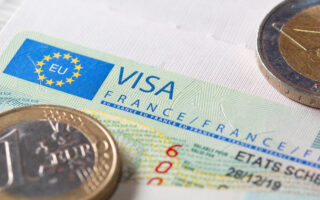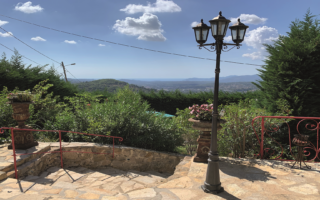How to sell a business (Part 1)

In this mini-series, David Hammond shares his top tips to help you get the best return on your investment in France

In Part One of this mini-series, David Hammond looks at how to value and market your business and how to prepare your company for sale:

My wife and I arrived in Burgundy 10 years ago with the aim of starting, building and eventually selling a wine tours business. In the last decade, we built up our business, Burgundy Discovery, and many in the area have described us as pioneers in wine tourism in the region. We are happy we have played a leading role creating a market here, although sadly it’s not always the pioneers that enjoy the profits!
With a background in small business in the UK, we started in France with a clear goal for an exit route from the business at some stage. Adopting this mindset at the beginning is very important – it focuses your thinking on what you do and how you do it. Wine tourism is a service business and the owner’s role is critical to the success but never make yourself indispensable to the business.
The timing of a sale is vital. First, you will love what you do. We did. In fact if you don’t love what you do you are probably in the wrong business and it will fail sooner or later – your customers can always tell if you have passion or not. If you love it you’ll want to grow the business as much as you can, which takes many years.
These will be wonderful times as you see the fruits of your labours and meet great people, many of whom will become friends as the years progress and you receive repeat business.
But, of course, while having fun is part of the reason to be here it has to be profitable. There will come a time where you feel it is just right to sell. You may feel you have taken the business as far as you can or you have maximised the revenue. Maybe it is simply time for a new challenge – which is why we decided to sell Burgundy Discovery to start new ventures here: Bringing Burgundy To You and Cook in Burgundy.
PREPARING TO SELL
There is no hard and fast rule on the time from launch to sale. Anything less than five years is probably going to raise the ‘why?’ question with prospective buyers. We sold after 10 years and in conversation with business-owning friends here, it is amazing how many have sold or are planning to sell at around this same time frame.
Importantly, preparing a business for sale must start at least 12 months before you plan to exit. You will want to maximise revenue and profit in your final year accounts, perhaps by delaying large capital expenditure, or increasing prices to generate extra profit. It is, however, foolish to deliberately delay necessary marketing expenditure or trim the quality of service for short-term gain, as your new owners will probably require a handover period where obvious profit manipulation will become clear. Also, it may take around 12 months from your first sale advertisement to signing on the dotted line.
Once you have decided that the time is right to sell, there are a number of questions that need answering. What is the business worth, is an obvious one, plus how will you market the business? What procedure will you follow when responding to enquiries?
The short answer to the question of price is, naturally, what someone is willing to pay. There are a thousand and one ways to value a business and in a service business such as ours we had to decide exactly what it is that we were selling before calculating the worth.
It is important that you consider all the options carefully. Is there a part of the existing business you want to keep? Will you include the company vehicles or equipment in your sale price? Are there contracts that need renegotiating before the sale which could add value to the business?
ON THE MONEY
At an early stage it is essential that you consult your French accountant. They will advise on any tax implications of the sale and can give you tips on how to be most efficient with your assets. It might be tax efficient to buy your car out of your business, for example, rather than at the time of sale. Delaying the purchase of any new computers or kit until the sale has been concluded could also be a clever move.
Tax planning is a critical part of any business sale, particularly with the current French government’s attitude to taxing les plus-values,
i.e. capital gains. If you are planning to continue to run a business in France or start a new one, then various reliefs may be possible for re-investing the sale proceeds in a new venture.
CALCULATE YOUR WORTH
With a service business in tourism or a property like a chambres d’hôte, essentially you are selling the goodwill, which means the reputation, forward business, key clients and, nowadays, internet presence of the business.
Accountants will tell a prospective buyer that there is no value attached to goodwill in a small business. You will need to demonstrate that there is value and that your proposed sale price reflects this.
In calculating your proposed sale price, take a moment to put yourself in a prospective buyer’s shoes. What are the key things they are looking for? What is the value to a prospective buyer? How long would it take a buyer to build a similar business from scratch and how much will this cost?
If you can see your business from the veiwpoint of a buyer, this will help you focus on setting a realistic price.
Accountants can come up with numerous ways to value a business and sometimes they can be too complex for a small enterprise. We chose the tried and tested method of an average of previous years’ net profits – typically this can vary between two and five years. Be clear, though, in what you are including in net profit – does it include depreciation and is it before or after social charges?
Once you have a figure ask yourself two questions. First, will I be happy with this sum as reward for my efforts in building the business and second, does it seem a reasonable sum for a buyer to be able to achieve a worthwhile return on their investment?
Bear in mind that it is highly unlikely that a prospective buyer will accept this sum without negotiation. Be willing to negotiate but also be prepared to walk away if the final sum offered is below what you feel is a fair figure. An acceptable deal is usually where the vendor accepts a little less than they would wish and where the buyer pays a little more than they hoped.
FIND A BUYER
Now you have a sale figure for the business, the next question is how to find your buyer. Think of marketing the sale of the business exactly as you promoted your business to clients. Who is the customer? Where are they? What magazines and newspapers are they likely to read?
For Burgundy Discovery, our premise was that our buyer was likely to be someone with a similar profile to our own, 10 years ago. That is, an English couple (possibly American) of similar age seeking a new life in France with an interesting business with profitable growth opportunities.
This helped us focus on where they may currently be in the world. They may be an expat couple already living in Europe, the US or perhaps Asia. Or, more likely, they may still be in the UK.
We researched the various English-language media on this basis and selected the avenues we believed would reach our target audience. We used a combination of press articles and advertising in English-language media both in print and on the internet.
In total we used seven different media including the Financial Times, Decanter Magazine and French Property News. The publishers of this magazine will be pleased to learn that out of the 30 genuine, quality enquiries we received, around 25% of these came from French Property News.
The publicity campaign started in summer 2011 and we signed the acte de vente (sale contract) on 30 April 2012 – almost a year from the first publicity.
Responses to advertising have to be filtered to check the level of seriousness and to convey the commercial sensitivity of the information you will need to supply. Before you supply commercially sensitive information get a prospective buyer to sign a non-disclosure agreement (NDA) or confidentiality agreement.
These consist of a series of clauses that state the confidentiality of any information supplied, define who this information may be shared with, set out a process for the return or destruction of information supplied if the sale/purchase fails to proceed and decline responsibility for the accuracy of information supplied.
It can be sent electronically or as a hard copy but it is important to receive a signed copy complete with name, address, phone number, company name and email address. Make sure both parties sign the NDA.
Ours comprised around 10 clauses and we distributed it with a covering note that explained the reasons for us requesting a signed non-disclosure agreement before we released certain information.
In Part Two of this mini-series we will look at negotiating the sale, drafting an agreement and the quirks of the French system
www.burgundydiscovery.com
www.bringingburgundytoyou.com
www.cookinburgundy.com
Joy and Robert Pygott are the new owners of Burgundy Discovery
Share to: Facebook Twitter LinkedIn Email


